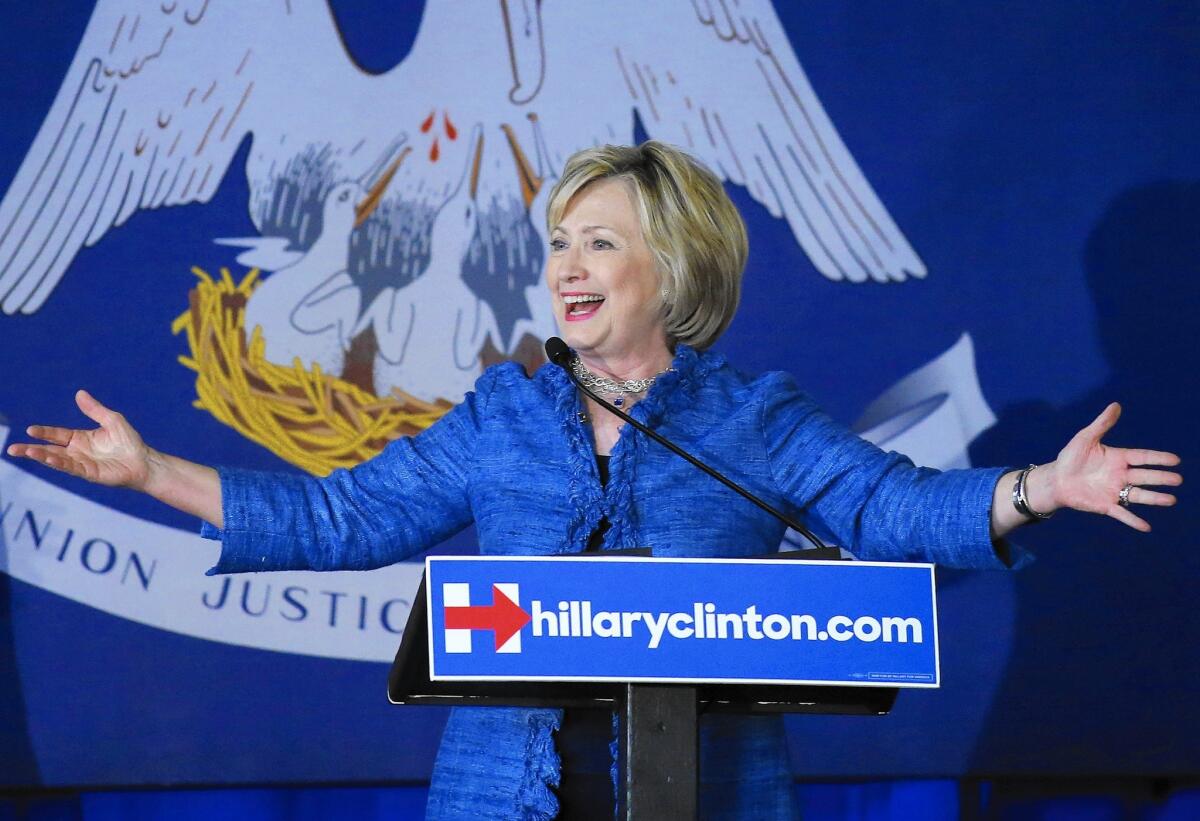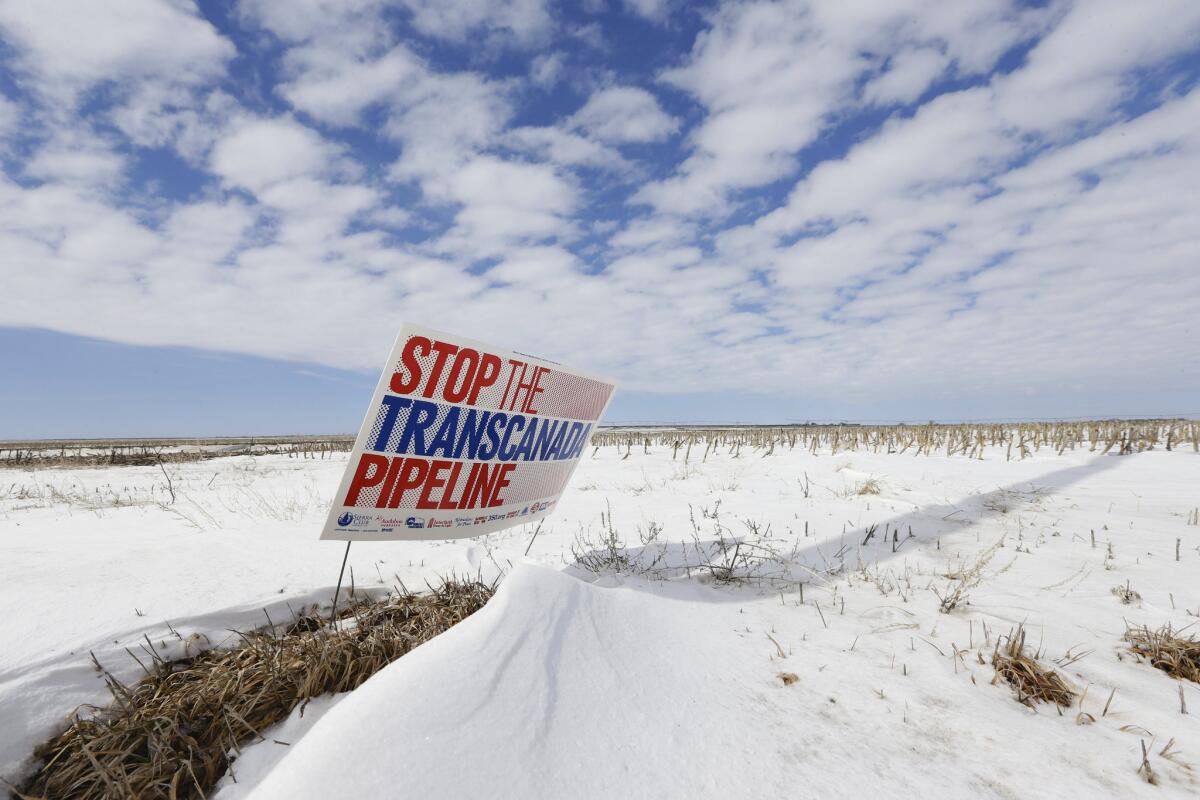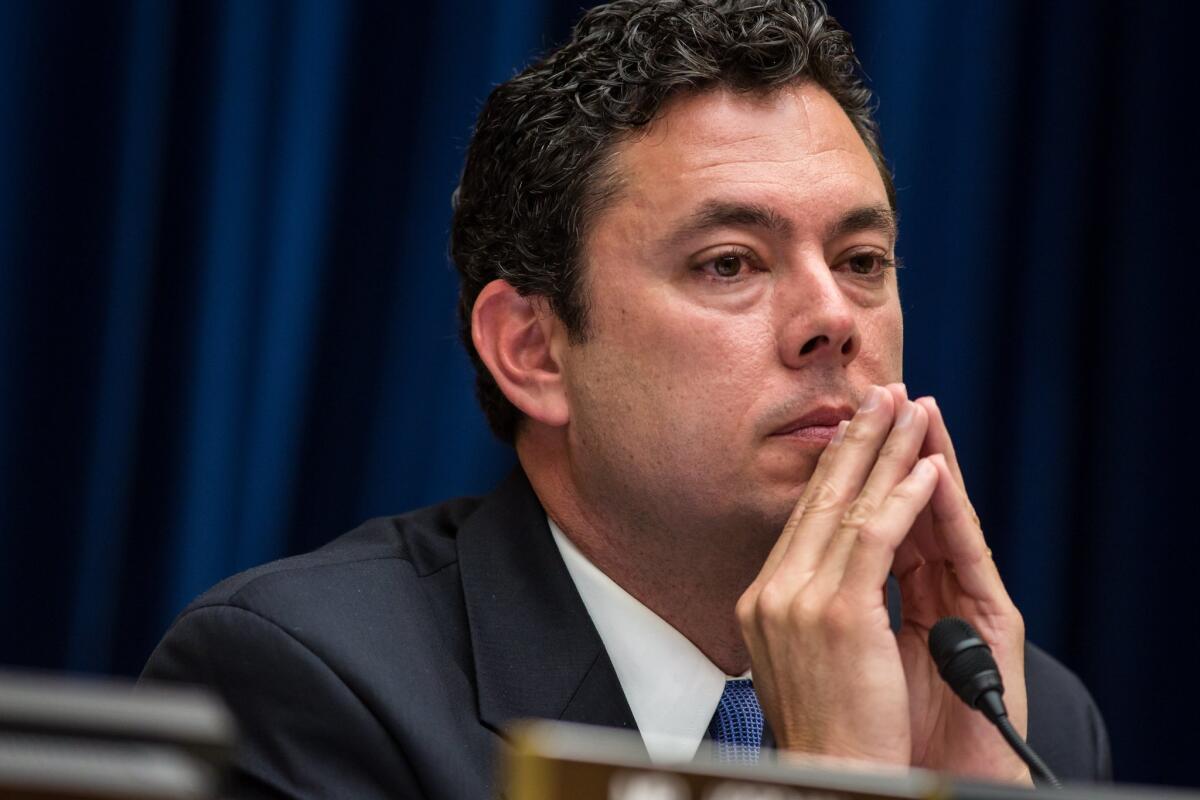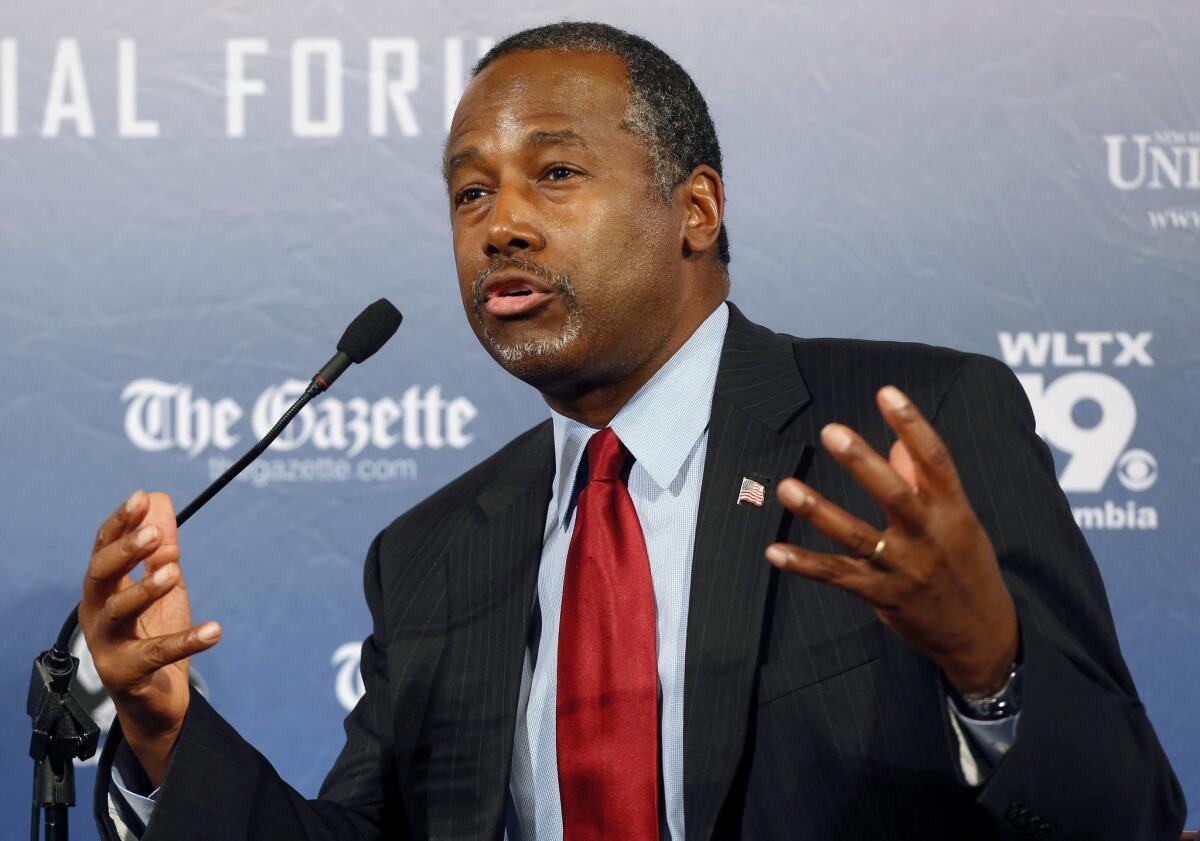Ben Carson says he would have confronted the Oregon shooter: ‘He may shoot me but he can’t get us all’
- Share via
By the numbers
Welcome to Trail Guide, your daily host through the wilds of the 2016 presidential campaign. It's Tuesday, Oct. 6, and this is what we're watching:
- For 2016, super PAC contribution rules are being stretched like never before
- Hillary Rodham Clinton will talk healthcare in Iowa
- Clinton rolled out proposed limits on guns
- The Pacific trade pact, the ultimate in insider deals, is a tough sell in an "outsider" year on the campaign trail, Christi Parsons and Michael A. Memoli report
Hillary Clinton sends copies of her book to Republican presidential candidates

Hillary Rodham Clinton has a message for Republican rivals claiming she hasn't accomplished anything: You can read a whole book about her successes.
At a campaign stop in Iowa, the former secretary of State said she sent copies of her book "Hard Choices" to GOP presidential candidates who critiqued her in case "they just don't know" her record.
"You know, I hear the Republicans talking from time to time in their debates and elsewhere, and they say things like, 'Oh, I don't know what she accomplished as secretary of State. She didn't accomplish anything,'" she said in Muscatine, Iowa. She added that "there are so many of them they could start a book club."
"Hard Choices" chronicles Clinton's four years as secretary of State and details her role in the foreign initiatives and crises that defined the first term of the Obama administration -- the "pivot" to Asia, the Afghanistan troop increase of 2009, the "reset" with Russia, the "Arab Spring" and the "wicked problem" of Syria.
Canadians divided over Keystone XL pipeline too

We know the proposed Keystone XL pipeline is a divisive issue in the U.S. It's even more so in Canada.
Almost half of Canadians, 48%, disapproved of building the pipeline, compared with 42% who approved, according to a poll by the nonpartisan Pew Research Center that was conducted earlier this year and released Tuesday.
The pipeline would run from the tar sands deposits under the Canadian prairies to U.S. refineries on the Gulf Coast. It has been on hold for several years, awaiting a decision by the Obama administration. Obama is expected to announce a decision soon -- most likely rejecting the pipeline -- but probably not until after Canada's election on Oct. 19.
In Canada, views of pipeline vary widely by province. Almost two-thirds of residents of Alberta, where the tar sands are located, support the pipeline. By contrast, slightly fewer than four-in-10 residents of Ontario, Canada's major population center, back it.
Supporters of the Conservative party, which currently governs Canada, strongly back the pipeline while supporters of the Liberal and New Democratic parties -- the two major opposition groups -- do not.
The survey was conducted as part of a larger international polling project Pew conducted in the spring. It has a margin of error of plus or minus 3.6 percentage points.
Ben Carson says he would have confronted Oregon shooter
"Not only would I probably not cooperate with him, I would not just stand there and let him shoot me," Republican presidential candidate Ben Carson said on "Fox and Friends." "I would say, 'Hey, guys, everybody attack him! He may shoot me but he can't get us all.'"
A blast from the past
Trail Guide wasn't around for the 1988 election, but if it were, you can be sure to have read lots about Bush, Hart, even Gore. Today, we resurrect another name from that election. (No, not Joe Biden.) The Democratic nominee for the presidency in 1988, Michael Dukakis, has a bit of a family connection to and support for Jason Chaffetz, the Republican who's challenging House Majority Leader Kevin McCarthy of Bakersfield for the speakership. The Times' Noah Bierman explains their relationship:
How the unrest on the campaign trail is unfolding in Washington's latest political drama

Rep. Jason Chaffetz (R-Utah) has launched a campaign for House speaker, posing a challenge to Rep. Kevin McCarthy (R-Bakersfield).
Voters' anger with the status quo was the story of the summer in the presidential campaign, and it's spilling over into the fight for the most powerful post on Capitol Hill.
After House Speaker John A. Boehner announced his impending retirement, the ascendance of his No. 2, House Majority Leader Kevin McCarthy of Bakersfield, seemed inevitable. But McCarthy now faces a challenge from conservative Rep. Jason Chaffetz of Utah, above, who says he's trying to channel constituents' outrage, The Times' Lisa Mascaro reports.
"If we just promote existing leadership, yikes, that's going to get ugly for us at home," Chaffetz said.
The Biden question lingers
How super PACs are taking on growing roles in the 2016 presidential race

Republican presidential candidate Ben Carson, a devout Christian, said in a recent interview that Islam is antithetical to the Constitution and he doesn’t believe that a Muslim should be elected president. Above, Carson speaking in New Hampshire in August.
The power of super PACs was unleashed by a series of Supreme Court decisions dating back to 1976, including Citizens United in 2010, that opened the door to unlimited contributions to political groups -- so long as they didn't coordinate with campaigns.
This presidential cycle, that rule is being stretched like never before, as political action committees shadow candidates and take on roles once reserved for the campaign organizations themselves -- even staging campaign rallies.
Many of the PACs and the campaigns are run by a revolving door of close friends and staffers, ensuring that the two sides share a common playbook even when they avoid tripping over the vague Federal Election Commission rules banning coordination.
By the numbers
Get the L.A. Times Politics newsletter
Deeply reported insights into legislation, politics and policy from Sacramento, Washington and beyond. In your inbox twice per week.
You may occasionally receive promotional content from the Los Angeles Times.







